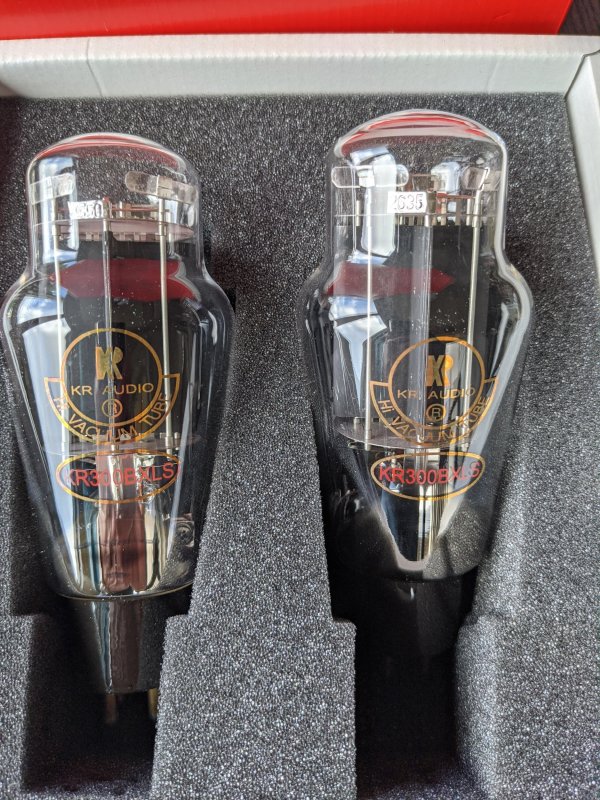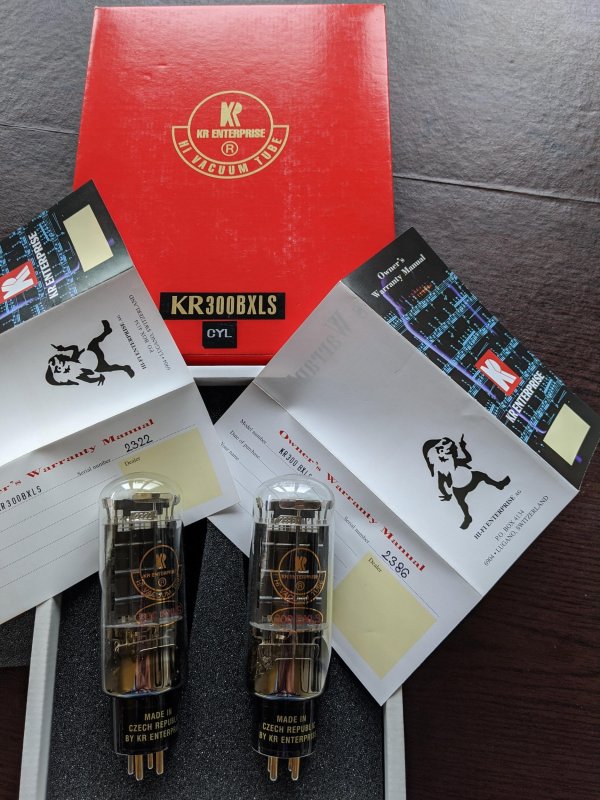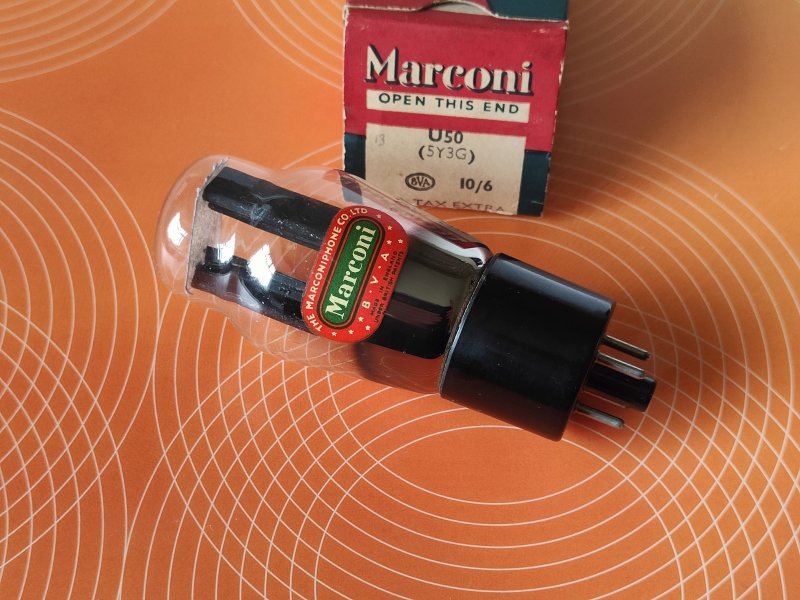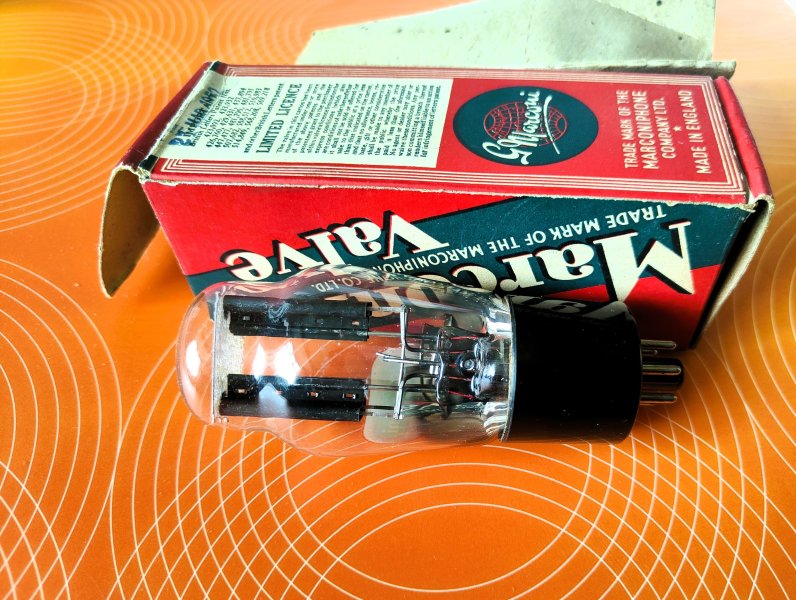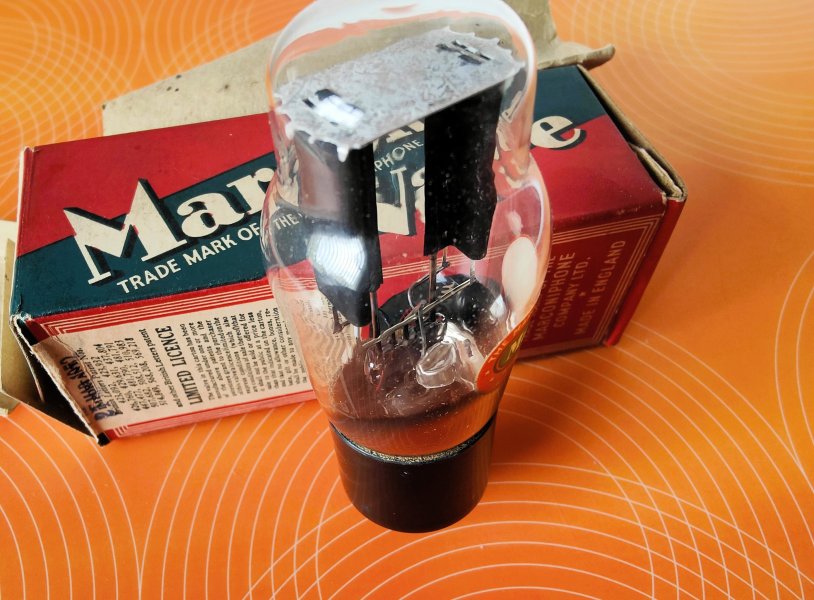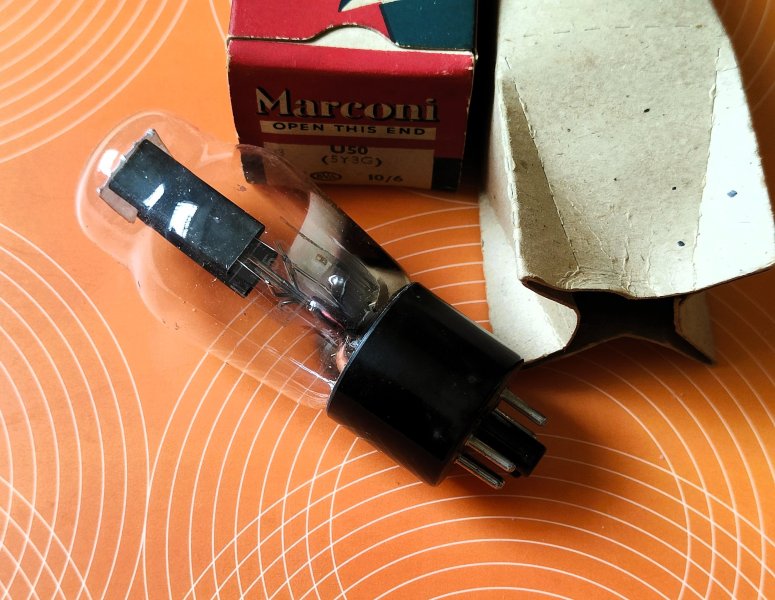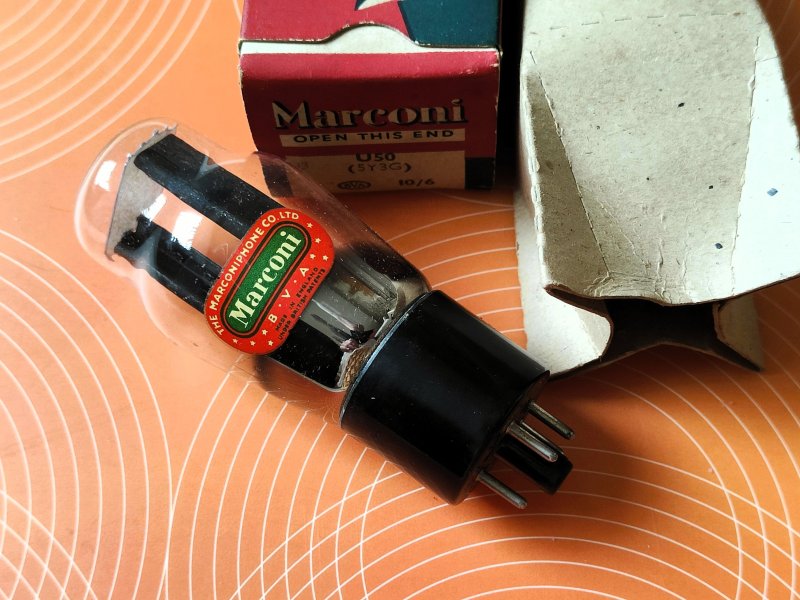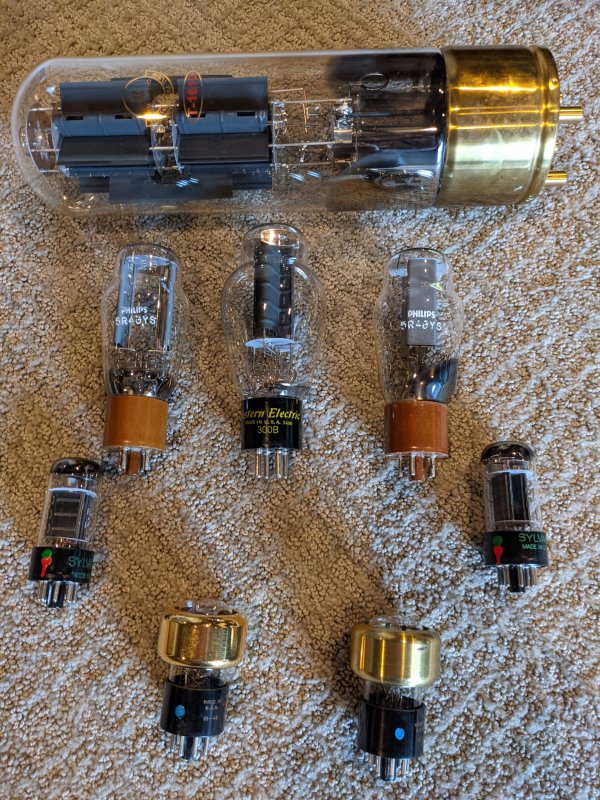That looks similar to 6SN7 or 6SL7 or 12SN7 internal construction. T plates at the top.

My Tube Collection, Welcome to share yours
- Thread starter adrian cheng
- Start date
You are using an out of date browser. It may not display this or other websites correctly.
You should upgrade or use an alternative browser.
You should upgrade or use an alternative browser.
These possibly the earliest black base 6n8s from Russia , much earlier than the metal baseThat looks similar to 6SN7 or 6SL7 or 12SN7 internal construction. T plates at the top.
Thank you @oldvinyl for explaining the importance of cleaning the pins. I'm going to be copying your methods soon.
I tried cleaning the pins of tubes with some things that I had around the house this weekend. Soaked the pins for about 10 minutes and brushed every few minutes. I took 3 tubes I was familiar with that I had measured multiple times in different locations to see if I could get a difference. Not only was the performance more stable during the testing but the maximum values increased by about -0.5 to -1.0 dBv per triode every single time I cleaned pins that were visibly corroded.
I did some quick and crude recordings of a before and after of a Tungsten ECC83. Very impressed!
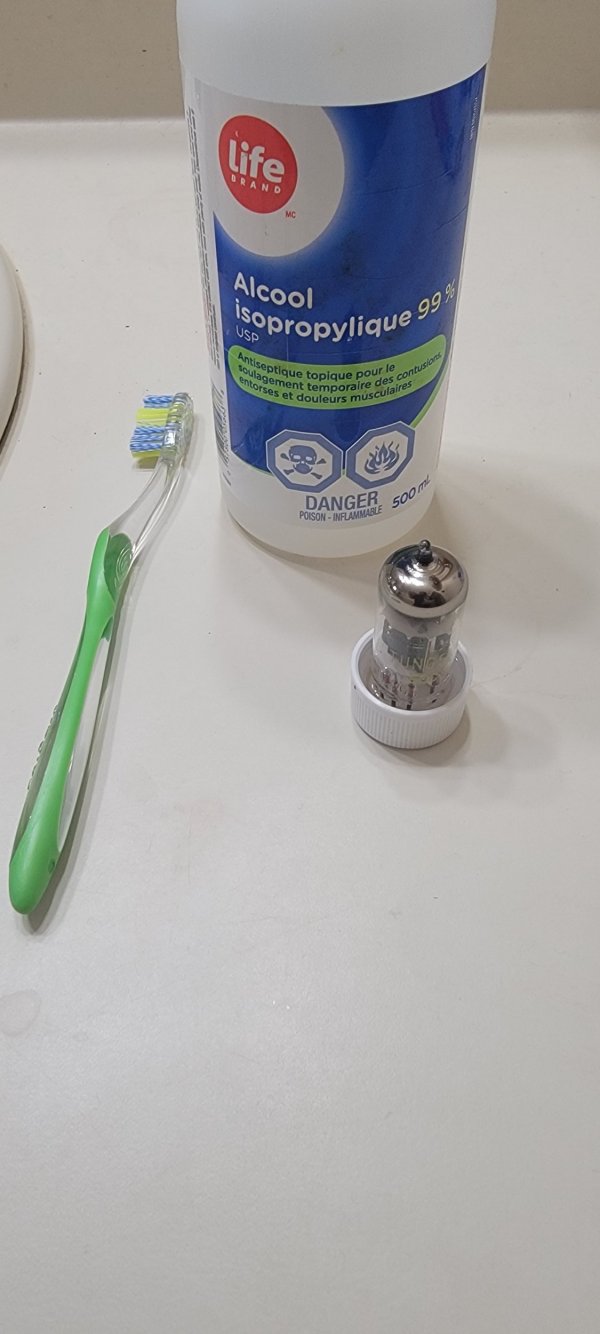
I tried cleaning the pins of tubes with some things that I had around the house this weekend. Soaked the pins for about 10 minutes and brushed every few minutes. I took 3 tubes I was familiar with that I had measured multiple times in different locations to see if I could get a difference. Not only was the performance more stable during the testing but the maximum values increased by about -0.5 to -1.0 dBv per triode every single time I cleaned pins that were visibly corroded.
I did some quick and crude recordings of a before and after of a Tungsten ECC83. Very impressed!

Good job, CarlosThank you @oldvinyl for explaining the importance of cleaning the pins. I'm going to be copying your methods soon.
I tried cleaning the pins of tubes with some things that I had around the house this weekend. Soaked the pins for about 10 minutes and brushed every few minutes. I took 3 tubes I was familiar with that I had measured multiple times in different locations to see if I could get a difference. Not only was the performance more stable during the testing but the maximum values increased by about -0.5 to -1.0 dBv per triode every single time I cleaned pins that were visibly corroded.
I did some quick and crude recordings of a before and after of a Tungsten ECC83. Very impressed!
View attachment 158882
It makes so much sense and I've done similar things with electronics like car battery terminals. Extremely impressed and I can't believe I didn't try this sooner. I'll be cleaning pins and all electrical contacts much more now.Good job, Carlos
The best thing I have found so far for miniature tube pins is a Dremel tool and a polishing tip. It takes some practice and patience. After the Dremel, I use the isopropyl alcohol. Obviously - not intended for gold plated pins.It makes so much sense and I've done similar things with electronics like car battery terminals. Extremely impressed and I can't believe I didn't try this sooner. I'll be cleaning pins and all electrical contacts much more now.
For larger tube pins such as octals and rectifiers or power tubes, I use Flitz on a Qtip. Always go over the pin with isopropyl alcohol after the Flitz since Flitz has its own polishing residue.
polishing bit
these work with Flitz to polish pins
another polishing bit
Flitz polish
Also - use the Flitz on AC plugs and in the IEC connections. The drop in the noise floor is amazing. Works on interconnects and speaker cables too.
And ... clean the tube sockets. I use Kontak and pipe cleaners for octal sockets and with interdental brushes for miniature tube sockets. Heck, clean the sockets on the MaxiPreAmpII ! Isopropyl alcohol works too.
interdental brush
Kontak
When the tubes were pumped down for vacuum and then sealed, the heat and flame leaves a residue on the pin. Then we come along 40, 50, 60, 70 or 80 years later and there is oxidation added on top. After the initial cleaning, the pins tend to stay much cleaner. Pins connected to high voltage will oxidize quicker.
This process will leave residue from the combustion for the flame and mix it with gases from the molten glass and heated up pins.
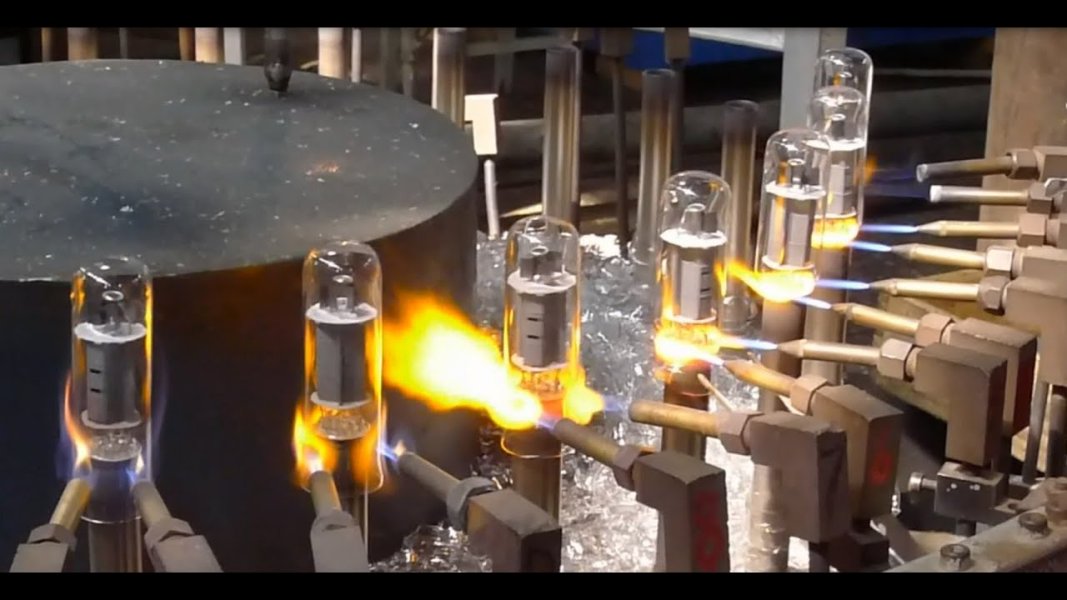
This process will leave residue from the combustion for the flame and mix it with gases from the molten glass and heated up pins.

Open a tube "spa" and offer "pinacure" treatments.Thank you @oldvinyl for explaining the importance of cleaning the pins. I'm going to be copying your methods soon.
I tried cleaning the pins of tubes with some things that I had around the house this weekend. Soaked the pins for about 10 minutes and brushed every few minutes. I took 3 tubes I was familiar with that I had measured multiple times in different locations to see if I could get a difference. Not only was the performance more stable during the testing but the maximum values increased by about -0.5 to -1.0 dBv per triode every single time I cleaned pins that were visibly corroded.
I did some quick and crude recordings of a before and after of a Tungsten ECC83. Very impressed!
View attachment 158882
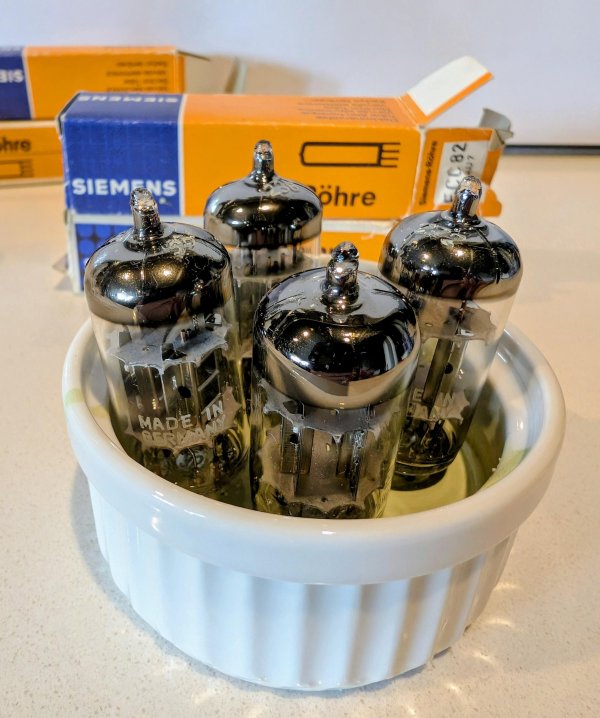
The Sovtek 6H23Π -EV has been marketed and sold as a 6922 replacement. In this case, it is labeled as "SQ" or special quality. The -EV version has a lower cathode resistance than a standard 6922.
These will work in some circuits and applications but are not recommended in other circuits and applications. Consideration for its effect on the power supply and the rest of the circuit is needed.
6H23Π -EV data sheet this shows cathode resistance 82 ohm.
6H23Π data sheet this shows cathode resistance 680 ohm.
6922 data sheet this shows cathode resistance 680 ohm.
Here is the tube labeled as a 6922 SQ:
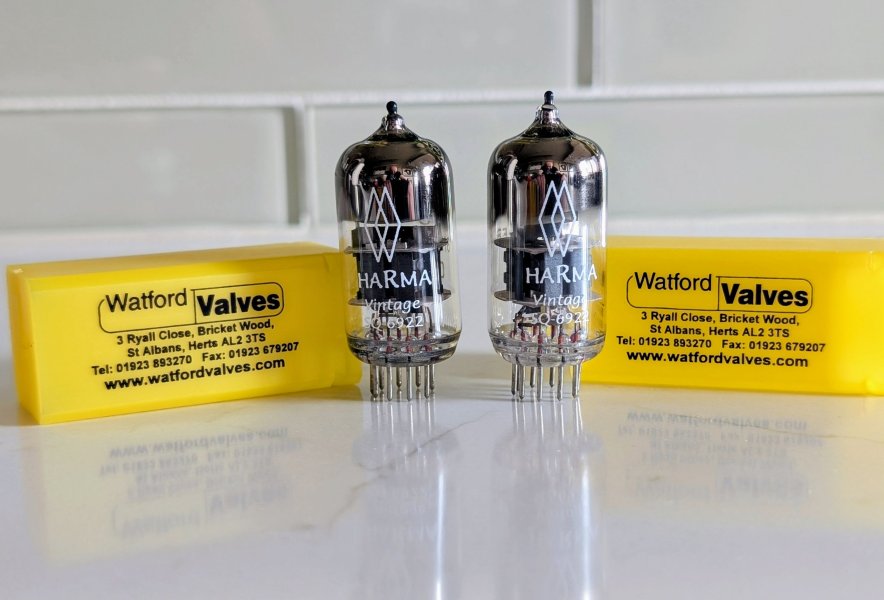
Here is the production label showing -EV version:
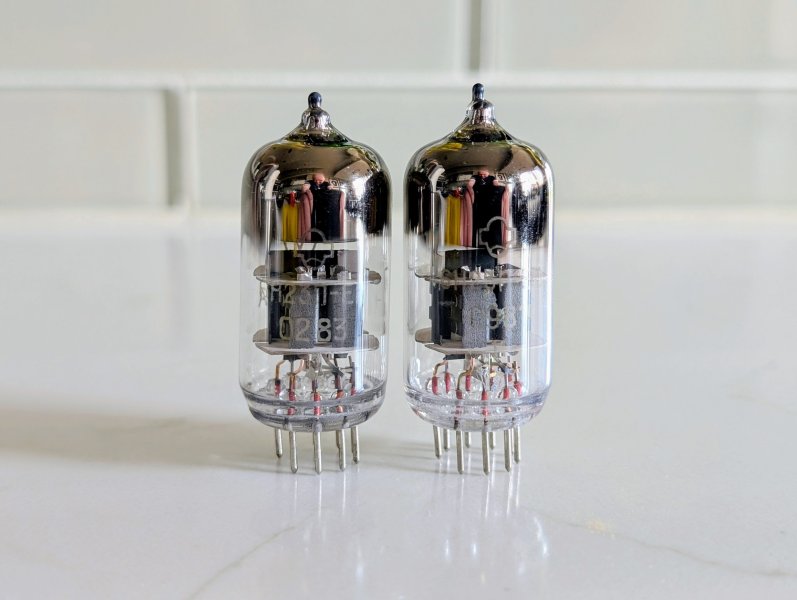
These will work in some circuits and applications but are not recommended in other circuits and applications. Consideration for its effect on the power supply and the rest of the circuit is needed.
6H23Π -EV data sheet this shows cathode resistance 82 ohm.
6H23Π data sheet this shows cathode resistance 680 ohm.
6922 data sheet this shows cathode resistance 680 ohm.
Here is the tube labeled as a 6922 SQ:

Here is the production label showing -EV version:

From Derek UKThe Sovtek 6H23Π -EV has been marketed and sold as a 6922 replacement. In this case, it is labeled as "SQ" or special quality. The -EV version has a lower cathode resistance than a standard 6922.
These will work in some circuits and applications but are not recommended in other circuits and applications. Consideration for its effect on the power supply and the rest of the circuit is needed.
6H23Π -EV data sheet this shows cathode resistance 82 ohm.
6H23Π data sheet this shows cathode resistance 680 ohm.
6922 data sheet this shows cathode resistance 680 ohm.
Here is the tube labeled as a 6922 SQ:
View attachment 159010
Here is the production label showing -EV version:
View attachment 159011
Those are some nice looking tubes!
Yes they areThose are some nice looking tubes!
Another supposed "matched pair". I am beginning to think that the Tungsram labels were wiped off and that these were relabeled by counterfeiters. These could have been sold as Tungsram ECC88 which were a half decent tube. The other odd part is that one says Holland, the other Germany and the seller thought that meant matched. They even found Amperex boxes.
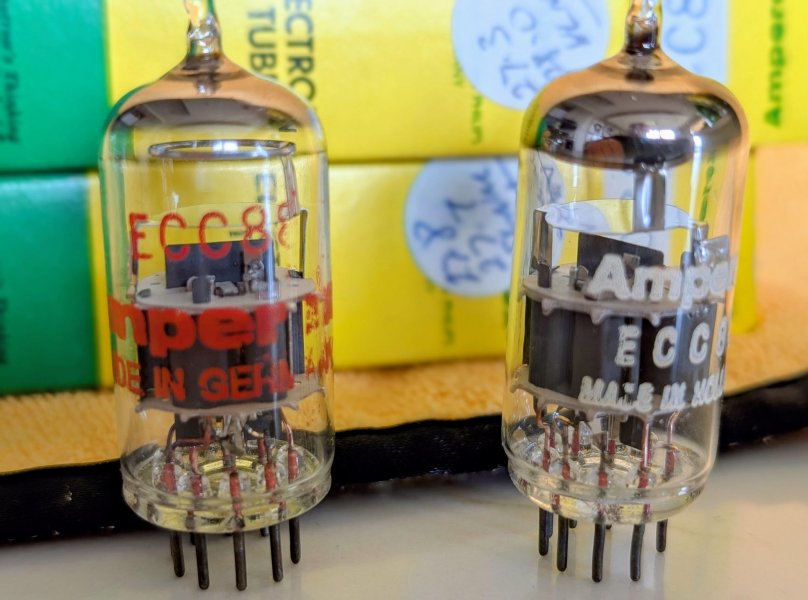
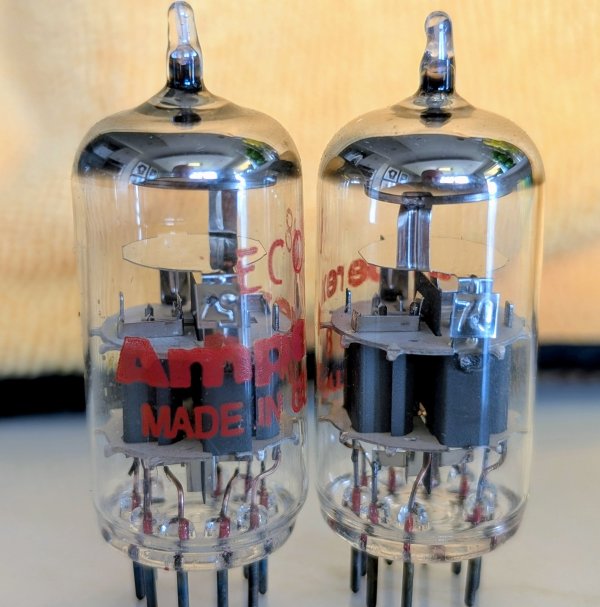


Similar threads
- Replies
- 201
- Views
- 13K
- Replies
- 8
- Views
- 3K
- Replies
- 3
- Views
- 234
- Replies
- 56
- Views
- 2K
| Steve Williams Site Founder | Site Owner | Administrator | Ron Resnick Site Owner | Administrator | Julian (The Fixer) Website Build | Marketing Managersing |


